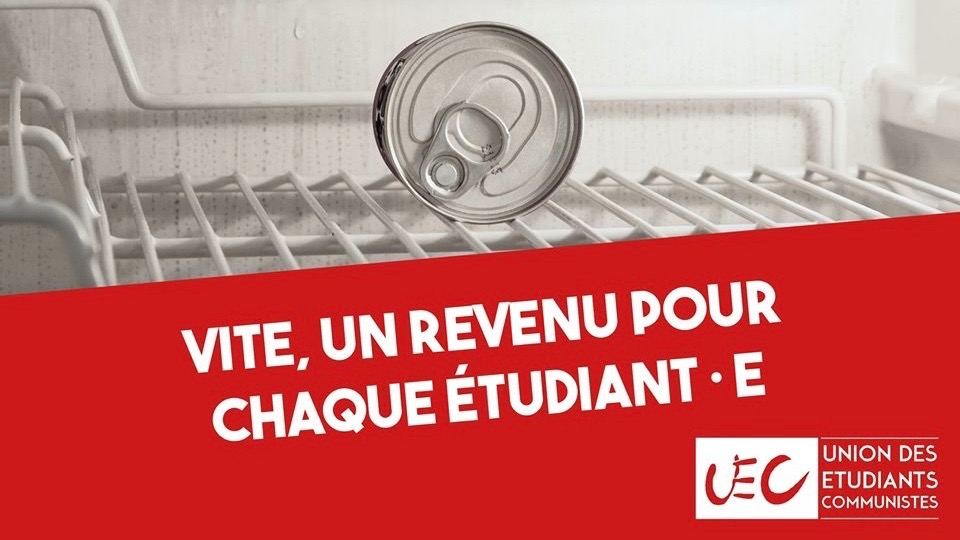As part of the national lockdown to fight COVID-19, France closed down schools, colleges and universities from March 17. After the government started reopening schools after May 11, at least 70 new cases of COVID-19 were reported from schools across France. The government then ordered the closure of the schools which reported new infections. However, the development has raised serious concerns among the students, teachers and parents. Here, Peoples Dispatch talks to Anais Fley, National Secretary of the Union of Communist Students (UEC), regarding the vulnerabilities faced by students during the lockdown and their concerns regarding its lifting.
Peoples Dispatch(PD): What has been the impact of the lockdown on the student community in France ranging from kindergarten to universities?
Anais Fley (AF): The suspension of in-person teaching has had negative consequences on the quality of education. From kindergarten to higher education, gaps have accumulated in a few months. Whether for children, students or teaching staff, the measures of confinement in education have been applied in a very amateur way. There is a huge amount of uncertainty and vagueness regarding the condition of exams, in addition to faulty online courses, the impossibility of following suitably the evolution of the pupils, the expulsion of foreign and overseas students at home, closed university libraries etc. Even children and students who have the privilege of having a suitable work space at home are finding it difficult to work properly. For students, the period has been marked by the anxiety of not succeeding in their projects and by precariousness, either by lack of income or by the obligation to work in highly exposed sectors such as home delivery services.
PD: What have been the initiatives by the French government towards addressing the concerns of the student community affected by the lockdown?
AF: Aside from measures to maintain student bursaries and aid for those living in university residences, the government has done nothing that has really allowed students to stay the course since March. Similarly, health students risk their lives and the lives of their families by helping hospital staff stem the pandemic: the only compensation awarded by the Minister of Higher Education is “honors”, not wages.
PD: From the point of view of the students, how do you perceive the lifting of the lockdown in France?
AF: The lifting of the lockdown, as it is organized, seems inconsistent. The measures of general lockdown had a cause: by depriving the country of sanitary means by decades of austerity, there was no other solution. So we were confined, for two long months, during which lessons should have been learned from the crisis. However, while the easing of the lockdown was announced two weeks ago, medical equipment is still lacking, the salaries of hospital staff have not been raised, the hospital management has returned to its austerity habits, the admissibility of health studies is still not expanded. We open the schools and we allow the resumption of transport but we do not distribute free masks. At the same time, more and more announcements from the government state that everyone will have to make efforts to go up the slope (or rather the GDP curve).
At the end of confinement, we know our government failed us. But we know who showed solidarity and exemplary responsibility during this period of crisis. We know who has the capacity to build the country towards progress and humanity that we need, for whom the health of all comes before profit. Women, care workers, garbage collectors, cashiers… These are the builders of the world of tomorrow, who must be at the head of our country.
PD: What are the proposals from the UEC towards the reopening and future of the French education sector in the backdrop of the continuing COVID-19 threat?
AF: To reopen universities in September, it is necessary to take into account the deficiencies accumulated by students since March. We cannot pretend that the lessons have not lost in quality.
– The first thing to do is to identify these gaps and set up a system to remedy it, all through summer until December.
– Next, let’s make small courses the norms, to promote exchange, assimilation of knowledge, the inclusion of all, and to limit health risks.
– It is then necessary to make fully operational the online documentation and access to quality course materials on the digital platforms of universities, to allow students to work from home in the best conditions.
– Of course, we must reinvest heavily in the university so that these measures can be really carried out this summer. The university presidents themselves declare that they are at least 10 billion euros short. The university is saturated. It is an educational and health risk. Let us hire staff and increase reception capacities wherever there is a need.
– In addition, confinement began with the mobilization of university staff and students against the LPPR, a destructive reform project for French public research. It is also up to university staff to allow a successful start to the school year: let’s revalue their statutes, working conditions, and wages, against the currently proposed LPPR reform.
– Finally, to respond to the student precariousness which was once again highlighted during the crisis, let’s set up a student income. But not out of charity: because to study is to work. This income must recognize the usefulness of studies and be financed by Social Security. It would allow us to increase solidarity in the country and to take control of our lives a little more from the capitalists.





